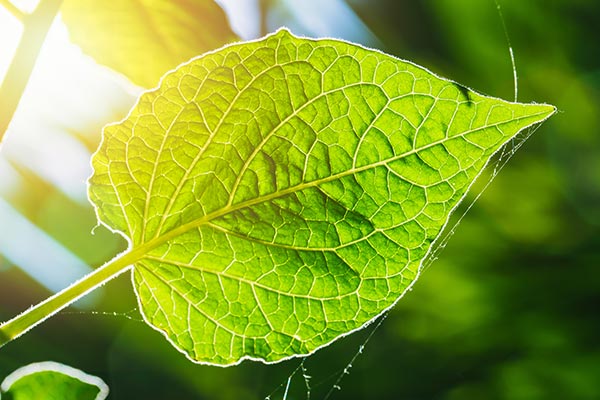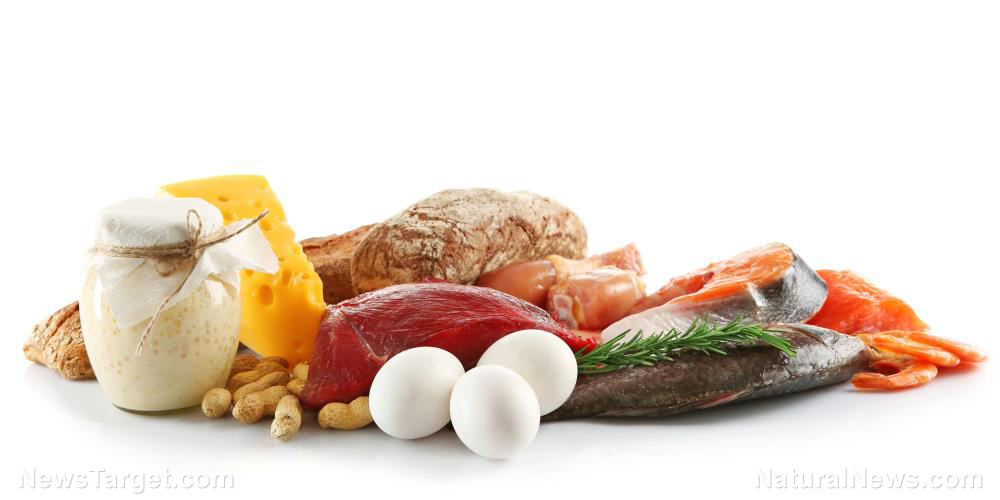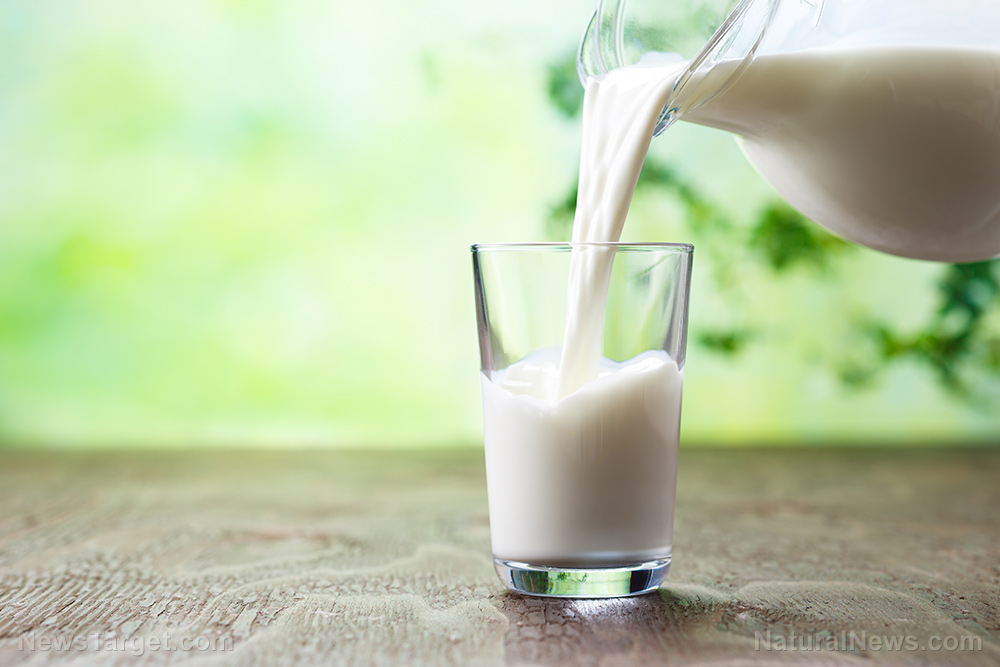
Apigenin
Apigenin is a flavone present in vegetables, such as parsley, celery, chamomile and the Egyptian plant Moringa peregrina.
In a study published in Cell and Bioscience, apigenin was reported to suppress various human cancers in vitro and in vivo by multiple biological effects, such as triggering cell apoptosis and autophagy, inducing cell cycle arrest, suppressing cell migration and invasion and stimulating an immune response.
Crocetin
Crocetin is a kind of diterpenoid natural carotenoid found in plants, such as saffron.
A study published in Current Pharmaceutical Biotechnology found that crocetin affects the growth of cancer cells by inhibiting nucleic acid synthesis, enhancing the anti-oxidative system, inducing apoptosis and hindering growth signaling pathways. (Related: 9 Anti-cancer foods you cannot ignore.)
Curcumin
Curcumin (diferuloylmethane) is the major component of the popular Indian spice turmeric. Its anti-cancer effects have been studied for brain tumors, breast cancer, colon cancer and lung metastases.
A study published in BMC Cancer found that curcumin inhibits angiogenesis in some tumors by suppressing angiogenic cytokines. Due to the strong relationship between inflammation and cancer, the anti-inflammatory effects of curcumin would well result in its anti-tumor effects.
Cyanidins
Cyanidin is an extract of pigment from red berries, such as apples, blackberries, cranberries, grapes, plums, raspberries, red cabbage and red onion.
A study published in Chemical Biology & Drug Design found that cyanidin produces its effects against cancer by inhibiting [RAS (reticular activating system) and MAPK (mitogen-activated protein kinase)] and activating (caspases-3 and P-38) innovative molecular pathways. It may cause cell cycle arrest, cell differentiation processes and changes in redox status, which trigger the cytotoxic chemotherapeutic effects.
Diindolylmethane (DIM)/Indole-3-carbinol (I3C)
I3C is found in Brassica vegetables, such as broccoli, cauliflower and collard greens. DIM is a digestion derivative of I3C via condensation formed in the acidic environment of the stomach.
In a study published in F1000 Research, researchers implicated I3C and DIM in the induction of phase 1 detoxification enzymes, which can result in the breakdown of other dietary carcinogens. Both in situ and in vivo studies point to a role for I3C as a chemoprotective agent in breast and prostate cancer.
Epigallocatechin gallate (EGCG)
EGCG is the most abundant catechin compound in green tea. A study published in Scientific Reports suggested that EGCG can strongly engender apoptosis and inhibit growth in several types of cancers, including brain, breast, colon and kidney cancers, as well as leukemia, as demonstrated by in vivo and in vitro research.
Fisetin
Fisetin is a flavone found in various plants, such as apple, Acacia berlandieri, Acacia greggii, cucumber, Eurasian smoke tree, grape, onion, parrot tree, persimmon and strawberries.
In a study published in Food Science & Nutrition, fisetin as a polyphenol with pleiotropic pharmacological properties was found to prevent progression in cell cycle and cell growth and induce apoptosis.
Genistein
Genistein is an isoflavone that originates from a number of plants, such as coffee, fava beans, Flamingo vestita, kudzu, lupine, psoralea, soybeans.
A study published in Advances in Nutrition indicated that genistein acts as a chemotherapeutic agent against different types of cancer, mainly by altering apoptosis, the cell cycle and angiogenesis and inhibiting metastasis.
Gingerol
Gingerol is the active component of fresh ginger with a distinctive spiciness. The anti-cancer activities of ginger against colorectal cancer have been well documented with its active component gingerol inhibiting the growth and proliferation of colorectal cancer cells.
In a study published in Gastroenterology Research and Practice, 6-gingerol inhibited the growth of colon cancer HCT116 cells.
Kaempferol
Kaempferol is a natural flavonol isolated from apples, broccoli, Brussels sprout, grapefruit, tea, Witchhazel and others.
A study published in Molecules indicated that kaempferol exerts its anti-cancer activity by preventing cell migration and invasion, inhibiting MMP-3 protein, downregulating AKT phosphorylation and increasing the focal adhesion kinase (FAK) activity.
Lycopene
Lycopene is a bright red pigment and phytochemical from red carrots, red papayas, tomatoes and watermelons.
A study published in the Journal of Pharmacy & BioAllied Sciences indicated that lycopene quenches singlet oxygen, scavenges free radicals and prevents the oxidative damage of DNA – preventing the potential transformation of normal cells to cancer cells.
Phenethyl isothiocyanate (PEITC)
PEITC, along with sulforaphane from cruciferous vegetables, such as broccoli, cabbage, watercress and others have been studied for induction of apoptosis (death) in cell lines.
A study published in Evidence-based Complementary and Alternative Medicine reported PEITC an effective anti-cancer and chemopreventive agent that inhibits cancer cell growth through cell-cycle arrest and induction of apoptotic events in various human cancer cell models.
Resveratrol
Resveratrol is a natural phenol and can be found in peanuts, red grapes skin and in other fruits.
According to the Cancer Council, as well as anti-inflammatory, antioxidant and cardio-protective effects, resveratrol has also been shown to have anti-cancer properties. Laboratory and animal research has shown that resveratrol can act against cancer cells by activating or deactivating molecular pathways.
Rosmarinic acid (RA)
RA is a natural antioxidant found in culinary spices and medicinal herbs, such as lemon balm, oregano, peppermint, rosemary, sage and thyme that can treat numerous ailments.
A study published in Biomolecules indicated that RA exhibits anti-cancer activity by regulating oxidative stress, chronic inflammation, cell cycle, apoptosis and metastasis. These data suggested that daily use of RA-enriched dietary supplements can contribute to tumor prevention and treatment.
Sulforaphane
Sulforaphane is an organosulfur compound obtained from cruciferous vegetables, such as broccoli, Brussels sprouts and cabbages. The enzyme myrosinase in the gastrointestinal tract transforms glucoraphanin into sulforaphane upon damage to the plant, such as from chewing.
According to the MD Anderson Cancer Center, studies have shown that sulforaphane blocks mutations in DNA that lead to cancer. It may slow tumor growth. Sulforaphane has also been shown to reduce the ability of cancerous cells to multiply – slowing tumor growth or reducing its ability to spread to other parts of your body.
Triterpenoids
Triterpenoids are biosynthesized in plants by cyclization of squalene, a triterpene hydrocarbon and precursor of all steroids.
Applanatum triterpenoids and polyketids have anti-cancer effects in in vitro and in vivo animal models. These triterpenoid compounds are anti-inflammatory, antioxidant and have overall cytotoxic effects via upregulation of caspase-3 and increased P53 tumor suppressor gene expression.
Vitamin D
A study published in the journal Oncology indicated that vitamin D may decrease tumor invasiveness and the propensity to metastasize, leading to reduced cancer mortality. Higher serum 25-hydroxyvitamin D or 25(OH)D levels at diagnosis have been linked to longer survival in cancer patients.
Vitamin E
Vitamin E represents a family of compounds comprising both tocopherols and tocotrienols and is a fat-soluble antioxidant that exists in many foods, including safflower oil, sunflower oil and wheat germ oil.
There are reports that both tocopherols and tocotrienols have anti-tumor effects due to their antioxidant properties. Tocotrienols show stronger bioactivity and both show anti-proliferative, pro-apoptotic and COX-2 inhibiting effects in in vitro studies. COX-2 is an enzyme that speeds up the formation of substances that cause inflammation and pain. It may also cause tumor cells to grow.
In a study that was published in the journal Science Signaling, researchers showed that one form of vitamin E inhibits the activation of an enzyme that is essential for prostate cancer cell survival. The loss of the enzyme, called AKT, led to tumor death.
Anticancer.news has more on plants and phytochemicals that can fight cancer.
Watch the following video to learn about killing cancer with 100 percent natural products.
This video is from the Snarky Guy Media channel on Brighteon.com.
More related stories:
Spotlight on cancer-fighting foods: What to eat to beat different kinds of cancer.
Arm yourself against disease with these anti-cancer foods.
Sources include:
Please contact us for more information.






















